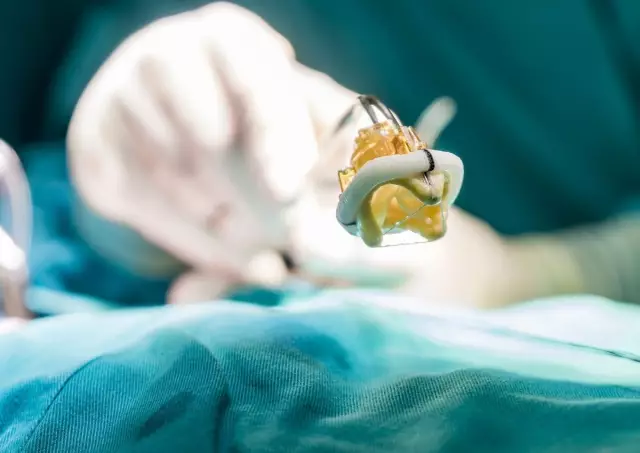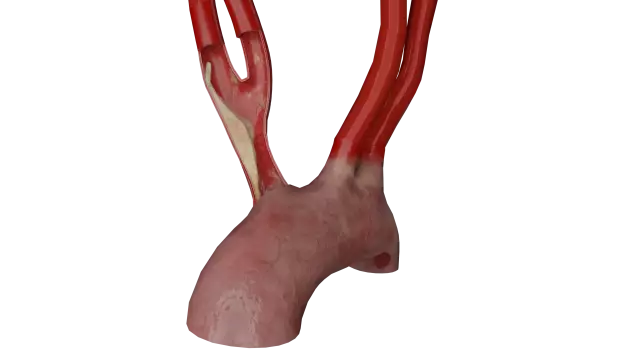- Author Rachel Wainwright wainwright@abchealthonline.com.
- Public 2023-12-15 07:39.
- Last modified 2025-11-02 20:14.
Aortic valve insufficiency

Aortic valve insufficiency develops due to dysfunction of the aortic valve.
Normally, the aortic valve acts as a one-way gate. When it opens, blood from the left ventricle, which is the heart's main pumping chamber, is pushed into the aorta, a large artery that extends from the heart. From the aorta, oxygenated blood enters the entire body through branching arteries, thereby nourishing the body. While the heart is at rest between beats, the aortic valve is closed, so blood does not return to the heart.
When the aortic valve is insufficient, it does not close completely, so during each heartbeat, a small amount of blood, which is pushed into the aorta through the damaged valve, enters the left ventricle. This process is called regurgitation. Because of this, an insufficient amount of blood enters the body, so the heart has to work hard to compensate for the shortage.
Depending on how long the regurgitation in the left ventricle is, there are three degrees of aortic valve insufficiency:
• 1 degree of aortic valve insufficiency (minor) - less than 5 millimeters from the cusps of the aortic valve;
• 2 degree of aortic valve insufficiency (average) - 5-10 millimeters from the aortic valve cusps;
• 3 degree of aortic valve insufficiency (pronounced) - more than 10 millimeters from the aortic valve cusps.
Causes of aortic valve insufficiency
Any condition that causes damage to the aortic valve can be the cause of this disease. Most often these are:
• congenital aortic valve disease;
• deterioration of the aortic valve with age;
• fever of a rheumatic nature;
• endocarditis;
• enlargement of the aorta due to high blood pressure;
• atherosclerosis;
• radiation therapy of the chest organs.
Rarely, aortic valve insufficiency can cause:
• Marfan syndrome (systemic connective tissue disease);
• syphilis;
• some autoimmune diseases;
• ankylosing spondylitis.
Sudden aortic valve insufficiency can occur due to:
• endocarditis (infection in the heart);
• aortic dissection (separation of the inner layer from the middle layer in the aorta);
• problems with a prosthetic aortic valve.
Symptoms of aortic valve insufficiency

In the initial stages, as a rule, no symptoms are observed. But over time, when, due to reduced blood flow, the heart works hard and the left ventricle increases, the following symptoms may occur:
• general weak condition;
• arrhythmia (heart rhythm disturbance);
• shortness of breath, especially during physical exertion;
• angina pectoris, pain in the chest, which often appears during exertion;
• palpitations, an unpleasant feeling of an irregular and accelerated heart rate;
• syncope (loss of consciousness).
Treatment of aortic valve insufficiency
Treatment of aortic valve insufficiency is determined by the cause and symptoms of the disease.
Often, if chronic failure is diagnosed for the first time, no special treatment is provided. To control the condition, you must visit a doctor. In some cases, if low blood pressure is present, certain medications may be used.
If the insufficiency of the aortic valve has been observed for a long time, symptoms have arisen or the left ventricle has lost its contractile ability, surgical valve replacement is performed.
YouTube video related to the article:
The information is generalized and provided for informational purposes only. At the first sign of illness, see your doctor. Self-medication is hazardous to health!






